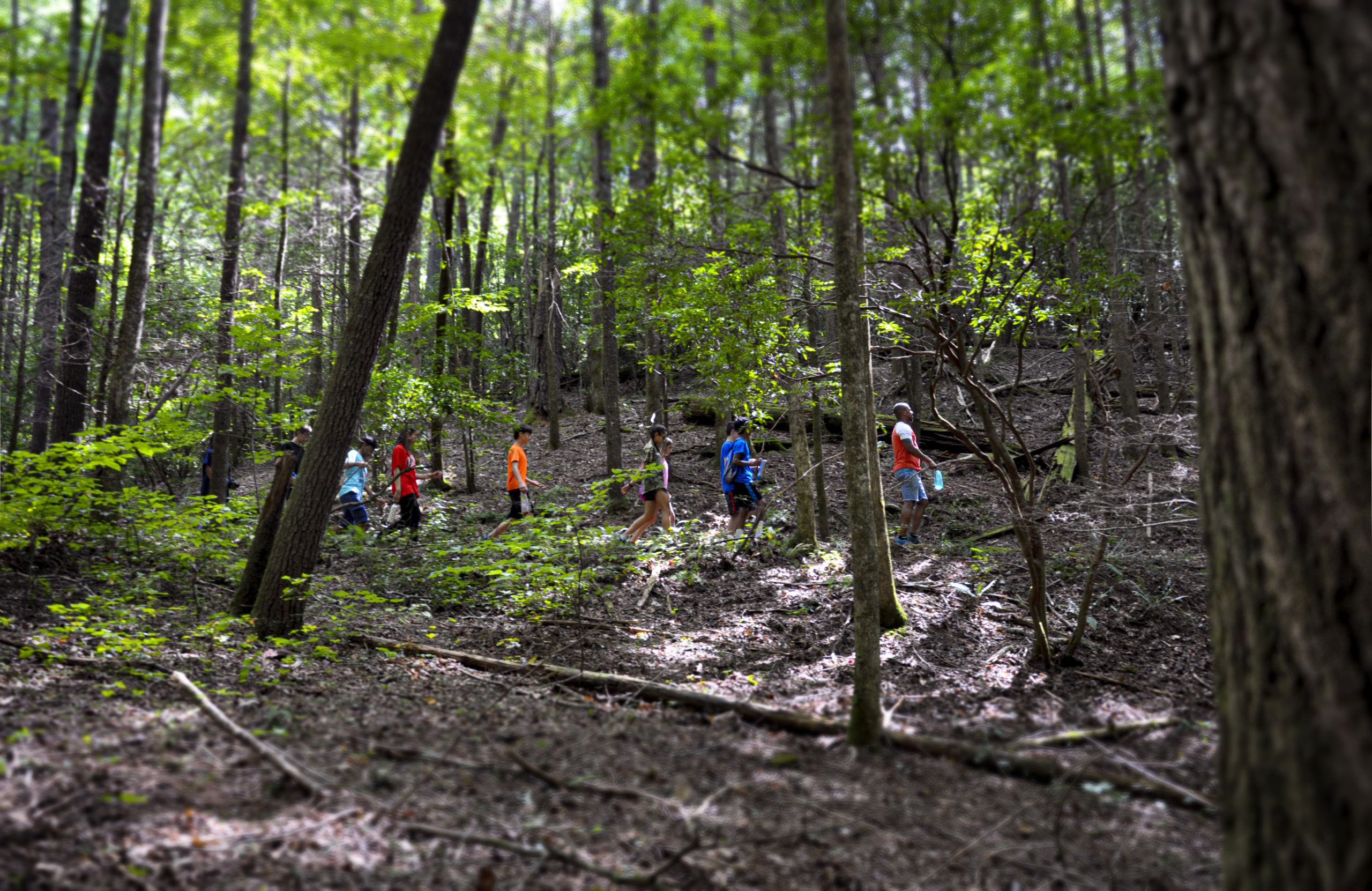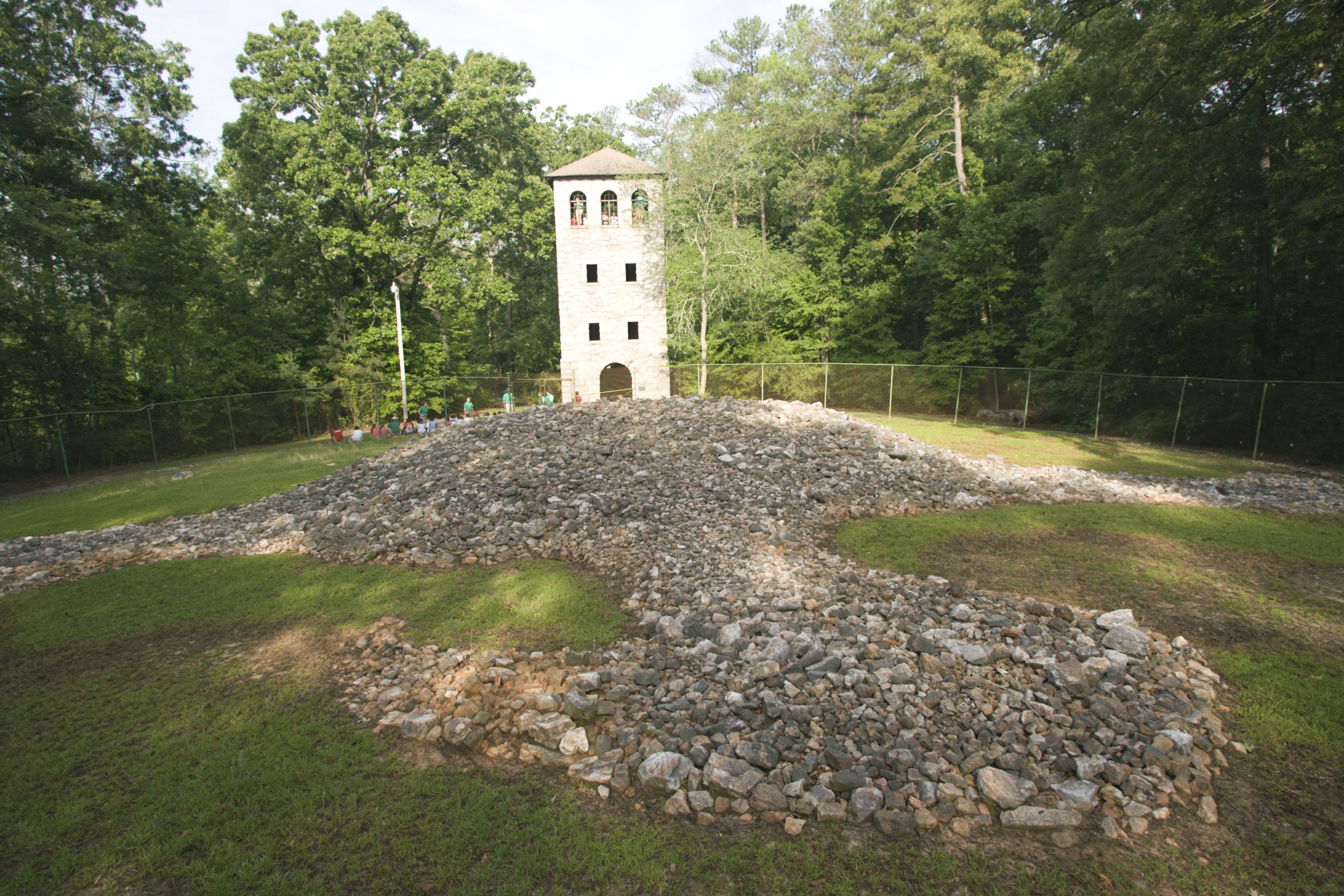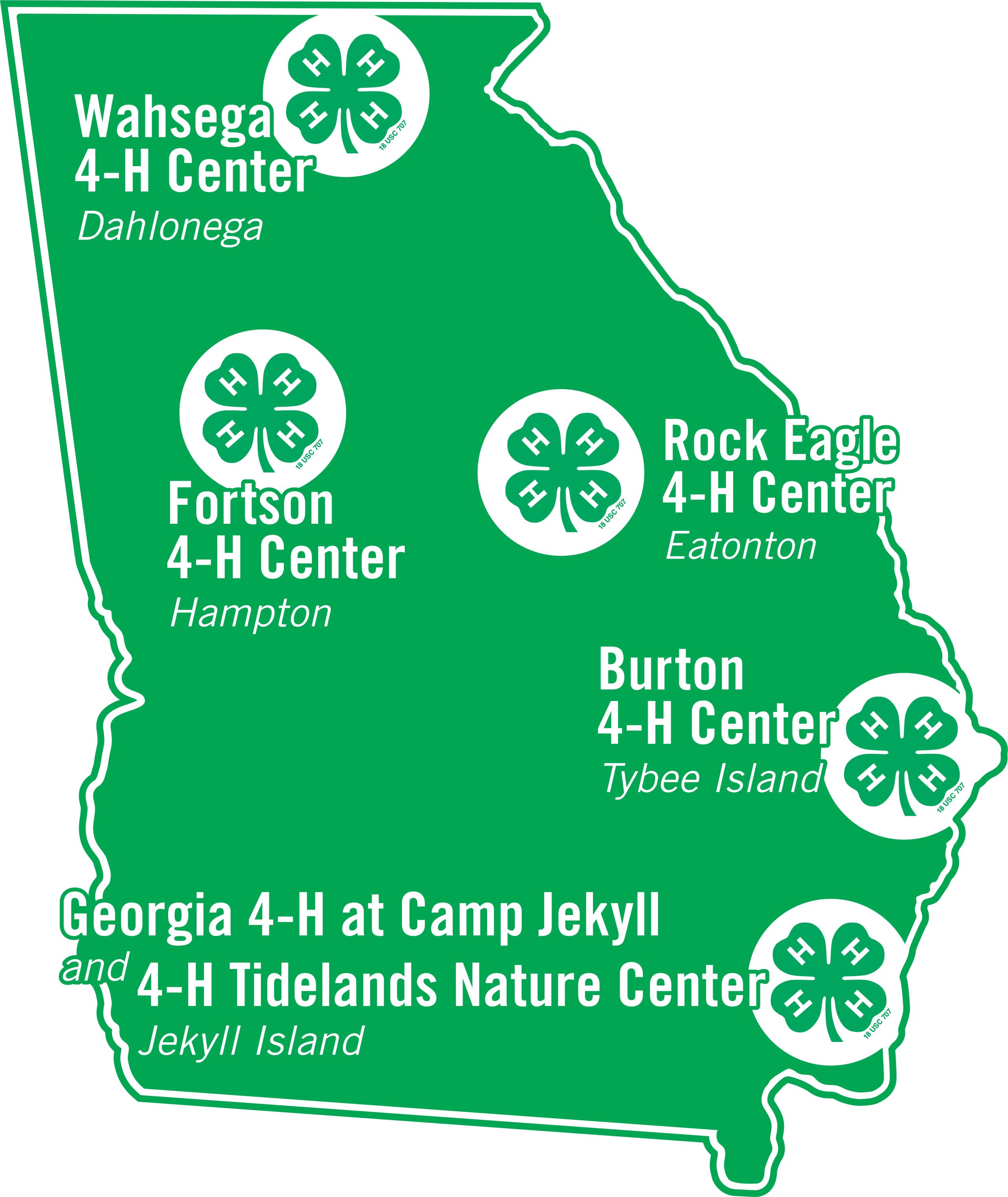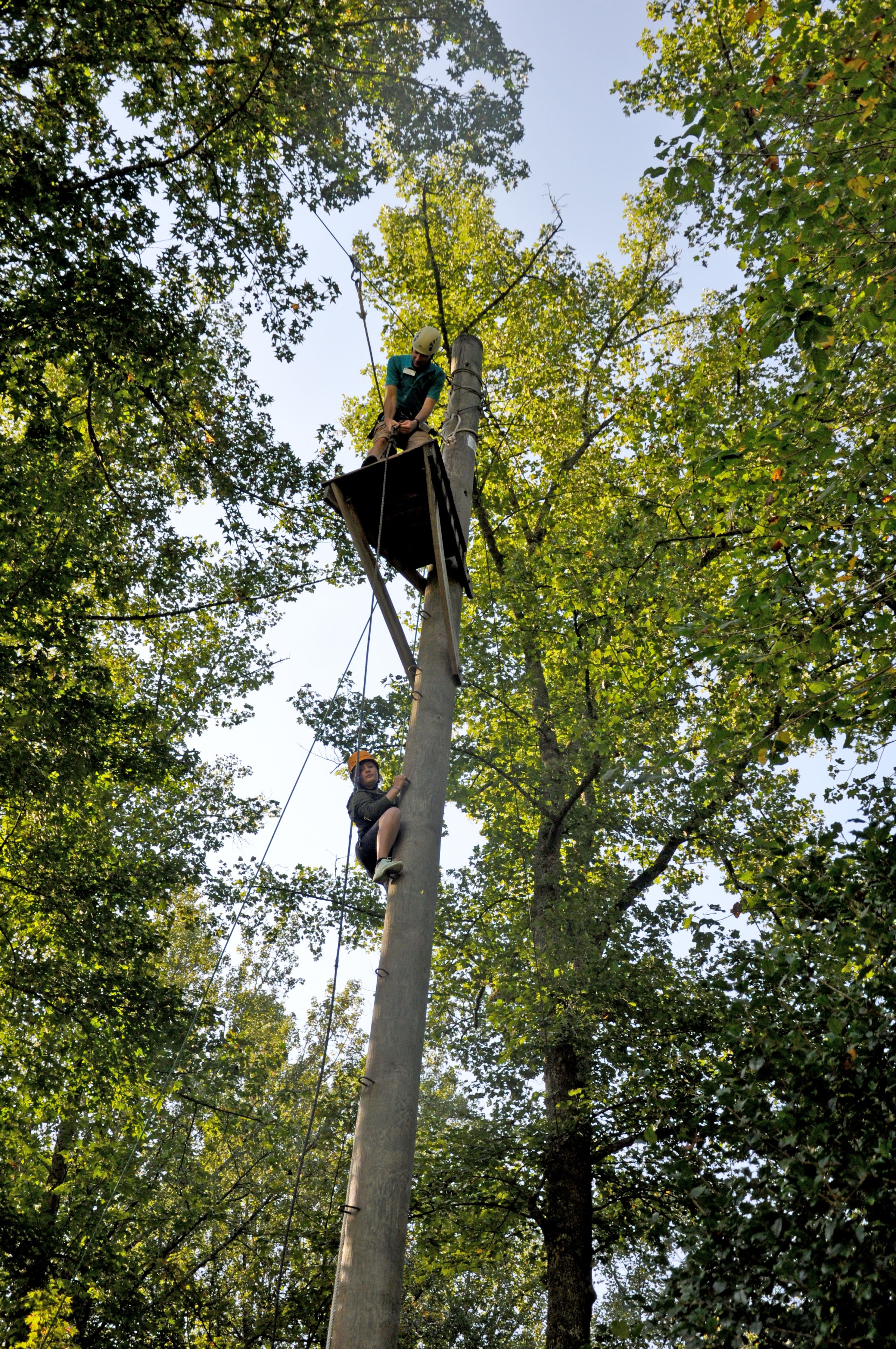Second Nature
Thousands of students learn about ecology through CAES programs

Influence on the
ENVIRONMENT
Thousands of students learn about ecology through CAES programs

For many Georgia students — and their teachers and parents — an environmental education field trip to one of University of Georgia Cooperative Extension’s five 4-H centers around the state is the highlight of the school year.
For students from Montessori Academy at Sharon Springs (MASS) in Cumming, Georgia, and Atlanta Montessori International School in Atlanta, Georgia, a recent trip to the Wahsega 4-H Center outside of Dahlonega, Georgia, was a chance for middle through high school students to form bonds between the sister schools and to challenge themselves in activities that are outside the norm for urban and suburban dwellers.
Over three days in August, these students navigated the trails, fields and streams practicing archery, zip lining, learning about night wildlife, navigating by GPS and more on an annual trip to the rustic camp tucked away in the southern portion of the Chattahoochee National Forest at the foot of the Blue Ridge Mountains.
“Being away from their usual setting and in nature is an unwinding experience for these kids,” said Bhairavi Chandramouli, a science and mathematics teacher at MASS who has brought students to Wahsega for several years. “In the city and in the suburbs, they are so disconnected from nature. Doing things hands-on in relation to nature — getting out into the forest, picking up frogs and millipedes — it helps them to have no inhibitions about nature. We have to get them close to nature so they will enjoy it throughout their lives.”
Paul Pierre, a junior high teacher at Atlanta Montessori International, feels that the challenges the students participate in — whether building survival shelters from found materials in the forest or overcoming a fear of heights by zip lining — gives the students a feeling of accomplishment and camaraderie.
“Collaboration, problem-solving, overcoming challenges, all of these things help connect them to the concepts they are taught in class by bringing them out into the environment. Those are very important at this age,” Pierre said.
Adam Rolwes is the environmental education program coordinator for UGA Extension at the Wahsega 4-H Center. He lives at the facility year-round, as does Center Director David Weber, booking and coordinating trips for groups from public and private schools around the state. He also coordinates the seasonal environmental educators at Wahsega, education professionals hired from around the country for the state’s 4-H centers from September through May.
With a degree in biology from Missouri State University, Rolwes has worked in environmental education since graduating in 2012. “I started out in environmental education at Fortson 4-H Center as a seasonal environmental educator and have not looked back since. It is an amazing feeling to take a group of students on their first hike in the Chattahoochee National Forest or going from being timid around the snakes in herpetology to being willing to touch the program animals. Our natural world is an amazing, beautiful thing and I love helping students and adults gain that experience for the first time,” Rolwes said.
Katie Phillips (BSES — Entomology, ’18) was an environmental educator at the Rock Eagle 4-H Center in Eatonton, Georgia, for the 2018-19 academic year, an experience that helped confirm her desire to pursue an extension career. “I grew up as a 4-H’er, so I knew plenty about what Extension does, but this gave me a chance to figure out what I wanted to do,” she said.
Over the year she led more than 20 different classes for students from elementary through high school from lake ecology, herpetology and ornithology to canoeing, pioneer classes and Native American studies.
“It was definitely unlike anything I’ve ever done before because I was taking different groups of kids out every day and letting them do things many of them had never done. It was really exciting to see them experiencing new things, and when they’d get excited about something, I’d get excited with them,” said Phillips, who is now pursuing graduate studies in entomology on the UGA Tifton campus and working on pecan tree pest management with entomology Assistant Professor Angelita Acebes.
“I definitely plan to go into extension one day. I really enjoyed working with students and extension is where I want to go,” she said.

Students from Montessori Academy at Sharon Springs in Cumming, Georgia, and Atlanta Montessori International School in Atlanta, Georgia, participate in an ecology hike as part of a three-day environmental education experience at Wahsega 4-H Center in Dahlonega, Georgia.
Students from Montessori Academy at Sharon Springs in Cumming, Georgia, and Atlanta Montessori International School in Atlanta, Georgia, participate in an ecology hike as part of a three-day environmental education experience at Wahsega 4-H Center in Dahlonega, Georgia.

The six Georgia 4-H facilities offer overnight, day and community programs for youth and adults.
The six Georgia 4-H facilities offer overnight, day and community programs for youth and adults.

Zip lining is a popular environmental education class at Wahsega 4-H Center that challenges students to get outside their comfort zone.
Zip lining is a popular environmental education class at Wahsega 4-H Center that challenges students to get outside their comfort zone.
